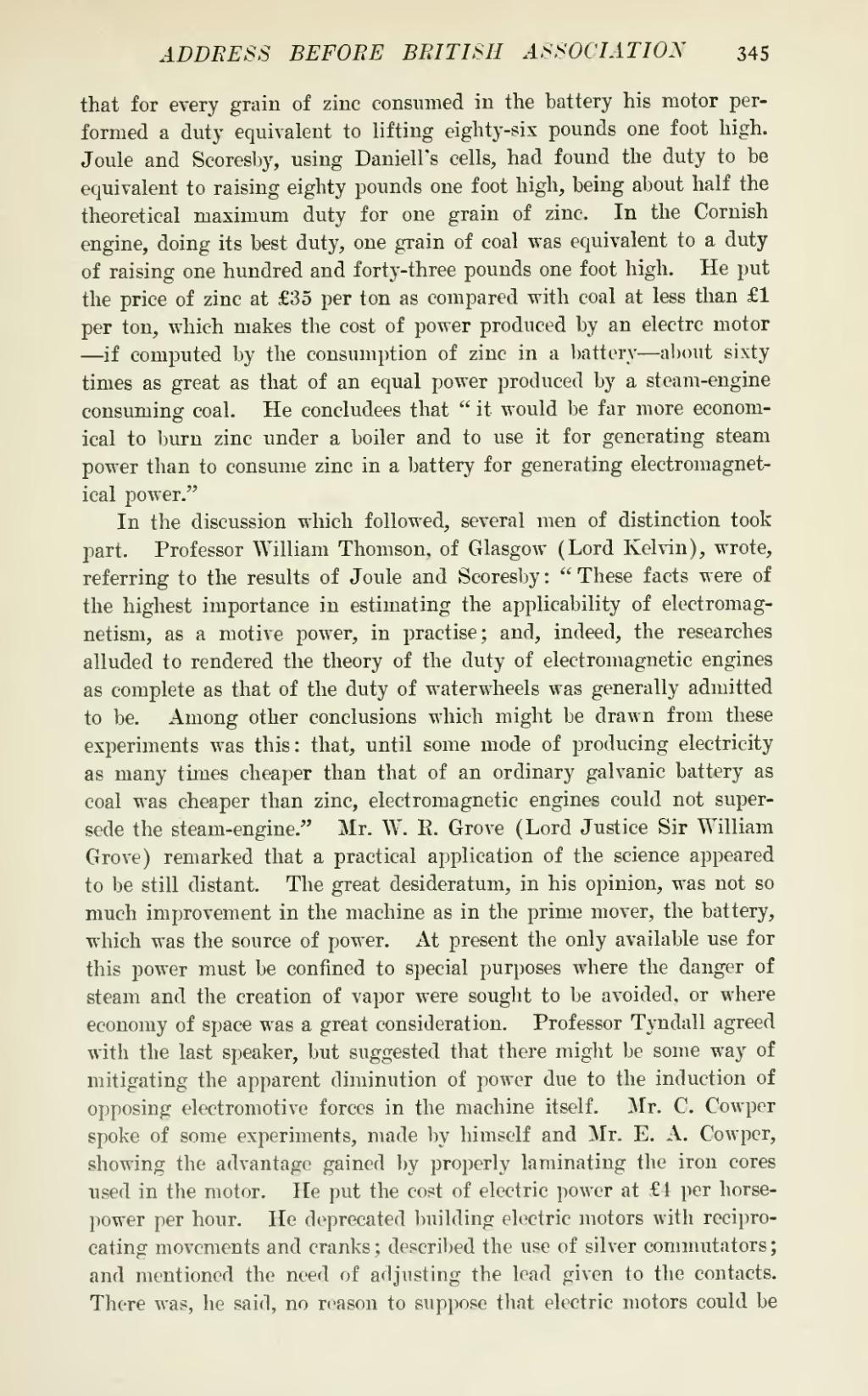that for every grain of zinc consumed in the battery his motor performed a duty equivalent to lifting eighty-six pounds one foot high. Joule and Scoresby, using Daniell's cells, had found the duty to be equivalent to raising eighty pounds one foot high, being about half the theoretical maximum duty for one grain of zinc. In the Cornish engine, doing its best duty, one grain of coal was equivalent to a duty of raising one hundred and forty-three pounds one foot high. He put the price of zinc at £35 per ton as compared with coal at less than £1 per ton, which makes the cost of power produced by an electrc motor—if computed by the consumption of zinc in a battery—about sixty times as great as that of an equal power produced by a steam-engine consuming coal. He concludees that "it would be far more economical to burn zinc under a boiler and to use it for generating steam power than to consume zinc in a battery for generating electromagnetical power."
In the discussion which followed, several men of distinction took part. Professor William Thomson, of Glasgow (Lord Kelvin), wrote, referring to the results of Joule and Scoresby: "These facts were of the highest importance in estimating the applicability of electromagnetism, as a motive power, in practise; and, indeed, the researches alluded to rendered the theory of the duty of electromagnetic engines as complete as that of the duty of waterwheels was generally admitted to be. Among other conclusions which might be drawn from these experiments was this: that, until some mode of producing electricity as many times cheaper than that of an ordinary galvanic battery as coal was cheaper than zinc, electromagnetic engines could not supersede the steam-engine." Mr. W. E. Grove (Lord Justice Sir William Grove) remarked that a practical application of the science appeared to be still distant. The great desideratum, in his opinion, was not so much improvement in the machine as in the prime mover, the battery, which was the source of power. At present the only available use for this power must be confined to special purposes where the danger of steam and the creation of vapor were sought to be avoided, or where economy of space was a great consideration. Professor Tyndall agreed with the last speaker, but suggested that there might be some way of mitigating the apparent diminution of power due to the induction of opposing electromotive forces in the machine itself. Mr. C. Cowper spoke of some experiments, made by himself and Mr. E. A. Cowper, showing the advantage gained by properly laminating the iron cores used in the motor. He put the cost of electric power at £4 per horsepower per hour. He deprecated building electric motors with reciprocating movements and cranks; described the use of silver commutators; and mentioned the need of adjusting the lead given to the contacts. There was, he said, no reason to suppose that electric motors could be

